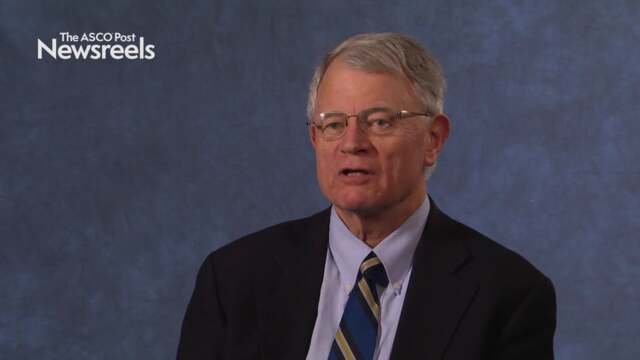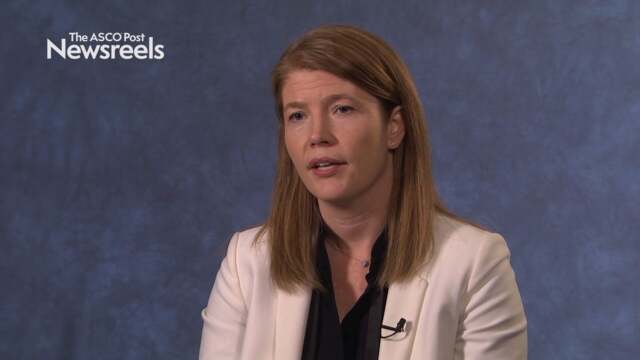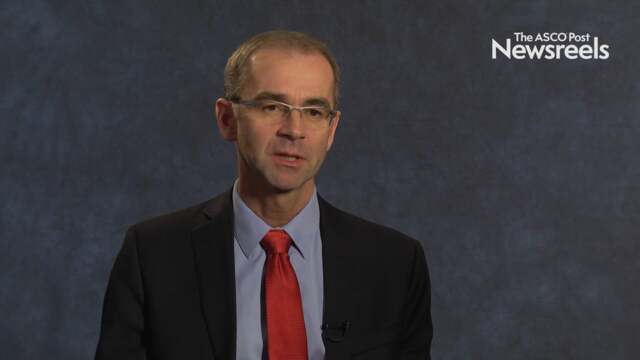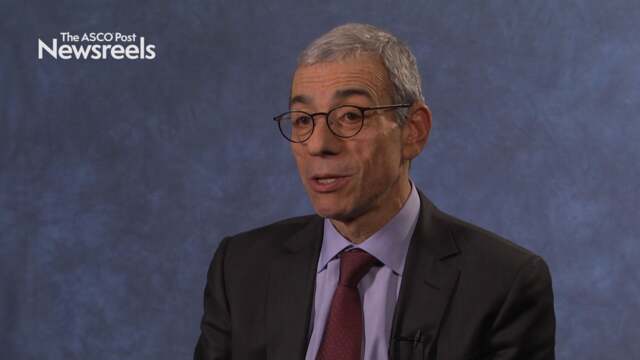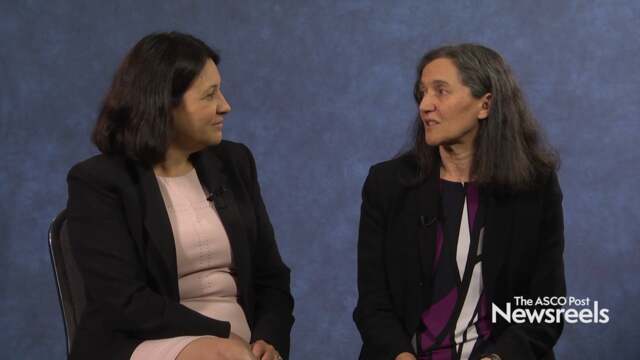Michael Gnant, MD, on Duration of Anastrozole Treatment: Results of the ABCSG-16 Trial
2017 San Antonio Breast Cancer Symposium
Michael Gnant, MD, of the Medical University of Vienna, discusses phase III study findings on giving an additional 2 vs an additional 5 years of anastrozole after the first 5 years of adjuvant endocrine therapy (Abstract GS3-01).
Louis Fehrenbacher, MD, of Kaiser Permanente, discusses study findings comparing adjuvant chemotherapy with doxorubicin and cyclophosphamide followed by weekly paclitaxel—or docetaxel and cyclophosphamide—with or without a year of trastuzumab in women with node-positive or high-risk node-negative disease (Abstract GS1-02).
Melinda Telli, MD, of the Stanford University School of Medicine, discusses the current status of treatment for advanced TNBC, and new therapeutic strategies now being used for better outcomes.
Wolfgang Janni, MD, PhD, of Ulm University, discusses study findings that showed extended adjuvant bisphosphonate treatment over 5 years in early breast cancer does not improve disease-free and overall survival when compared with 2 years of treatment (Abstract GS1-06).
Eric S. Winer, MD, of the Dana-Farber Cancer Institute, addresses the much-discussed controversy over whether all women diagnosed with metastatic breast cancer should undergo next-generation sequencing.
Vered Stearns, MD, of Johns Hopkins University, and Prudence A. Francis, MD, of the Peter MacCallum Cancer Centre, discuss two key topics in adjuvant treatment: endocrine therapy for premenopausal women with ER+ breast cancer and finding the optimal duration of treatment.
